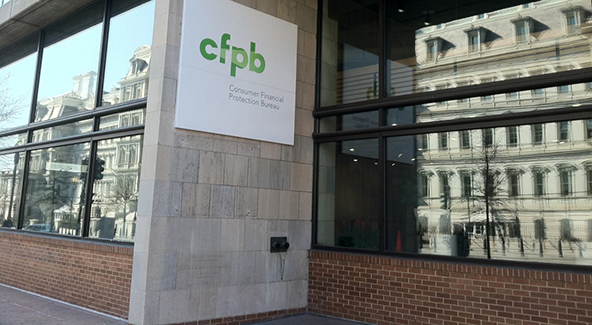On CFPB’s General Lawlessness

The Consumer Financial Protection Bureau (CFPB) is “[a]nswerable to no one”, declares George Will in the title of his latest op-ed and then proceeds to inveigh against the consumer watch dog through the entirety of his piece. As he goes through a laundry list of grievances, Will becomes increasingly exasperated, eventually getting almost as worked up as Paul Krugman usually gets when commenting on a choice Wall Street Journal op-ed. It is quite something to behold.
But apart from its amusement quality, Will’s op-ed raises important questions about the CFPB’s legality and remit. The former issue is beyond my area of expertise, but it seems to me that as a practical matter, now that Obama is reelected, the only way for the CFPB to be taken down would be through a Supreme Court decision and I have no idea how likely this is to happen. On the other hand, whether or not its set-up is constitutional, I think that the CFPB’s role is an important one. While the bureau did launch itself into some dubious projects, like its attempt to simplify credit card agreements, on the whole the CFPB has thus far performed quite well.
‘CFPB’s General Lawlessness’
George Will has no doubts about the bureau’s legality:
The CFPB’s director, Richard Cordray, was installed by one of Barack Obama’s spurious recess appointmentswhen the Senate was not in recess. Vitiating the Senate’s power to advise and consent to presidential appointments is congruent with the CFPB’s general lawlessness.
The CFPB nullifies Congress’s power to use the power of the purse to control bureaucracies because its funding — “determined by the director” — comes not from congressional appropriations but from the Federal Reserve. Untethered from all three branches of government, unlike anything created since 1789, the CFPB is uniquely sovereign: The president appoints the director for a five-year term — he can stay indefinitely, if no successor is confirmed — and the director can be removed, but not for policy reasons.
Not only is the CFPB illegal, Will tells us, but its spending is out of control:
One CFPB request for $94 million in Federal Reserve funds was made on a single sheet of paper. Its 2012 budget estimated $130 million for — this is the full explanation — “other services.” So it has been hiring promiscuously and paying its hires lavishly: As of three months ago, approximately 60 percent of its then 958 employees were making more than $100,000 a year. Five percent were making $200,000 or more. (A Cabinet secretary makes $199,700.)
Unsurprisingly then, the author’s solution is for the whole thing to be dismantled, which “would affirm the rule of law and Congress’s constitutional role”.
Take the CFPB Down?
I am quite sympathetic to Will’s criticism of the CFPB’s “uniquely sovereign” status and of the bureau’s apparently unchecked power to receive huge sums of money from the Federal Reserve. Yet, flawed as its set-up may be, and despite all the foolish projects it has embarked on, the CFPB does serve a useful purpose.
The bureau’s most important contribution so far has been the creation of the Consumer Complaint Database, which contains data from the consumer credit card complaints filed with the CFPB. Once received, each complaint is then sent on to the appropriate card issuer, which has 15 days to respond to it and is expected to resolve and close the case within 60 days. I did go through the process and found it to be a quite simple and straightforward one. More importantly, the card issuer against whom I filed the complaint responded immediately and the whole issue was resolved within a week. In contrast, when I initially called the bank about my issue, they were much less cooperative. So a listing into the CFPB database is a stick with which consumers can prod an unenthusiastic issuer toward a resolution of a real-life problem.
Similarly positive was the bureau’s decision to levy a fine of $25 million on Capital One and to force the issuer to refund $150 million more to its cardholders over the bank’s use of deceptive practices in selling the so-called “add-on products” — things like payment protection plans and credit monitoring. Even if you thought that you had successfully fended off the series of sales pitches you were subjected to the last time you called your card issuer, you could still find yourself signed up for something you didn’t want and that could sometimes cause bigger problems. Following the Capital One fine, some issuers decided to stop hawking such products and the others will surely reconsider their sales practices.
The Takeaway
So the CFPB should not be dismantled, as Will wants, but it should be revamped. The employee salary issue should certainly be looked into and some kind of control should be implemented. More importantly, some kind of an accountability mechanism should be established to help the CFPB keep its focus on issues that actually need dealing with and leave alone things that have already been quite well regulated.
Image credit: Washingtoncitypaper.com.



The CFPB has done a great job so far and they should be allowed to keep doing it.